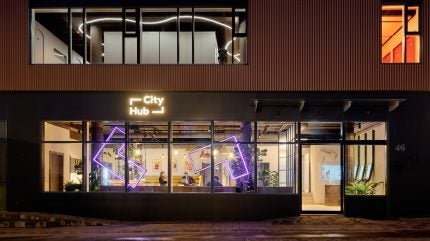
Urban lifestyle hotel brand CityHub has inaugurated its first property in Iceland with a new hotel in Reykjavik.
Dubbed CityHub Reykjavik, the hotel offers four accessible rooms, 89 pod-style hubs and prefabricated units designed in partnership with Netherlands-based interior designer Studio Uberdutch.
Iceland’s nature and culture were the key elements in the hotel’s design, developed in collaboration with local developers and interior designers HAF Studio.
The hotel allows guests round-the-clock check-in through CityHub’s user-friendly kiosks. Visitors can also access their accommodations using RFID wristbands.
Guests are allowed to enter the hotel’s self-service bar and also have access to CityHosts, which helps them explore Reykjavik.
Similar to its properties in Amsterdam, Rotterdam, and Copenhagen, CityHub Reykjavik repurposes an existing building, minimising its carbon footprint.
How well do you really know your competitors?
Access the most comprehensive Company Profiles on the market, powered by GlobalData. Save hours of research. Gain competitive edge.

Thank you!
Your download email will arrive shortly
Not ready to buy yet? Download a free sample
We are confident about the unique quality of our Company Profiles. However, we want you to make the most beneficial decision for your business, so we offer a free sample that you can download by submitting the below form
By GlobalDataCityHub co-founder Sem Schuurkes said: “With CityHub Reykjavik, we’re offering a fresh take on affordable, modern travel in one of the world’s most stunning destinations. Iceland is often seen as a luxury escape, but we’re breaking that mould – bringing a tech-enabled, sustainable, affordable option for travellers who want an authentic city experience.
“From our rooftop hot tub to our expert local CityHosts, we’ve created a space where guests can truly connect with the city while enjoying all the modern comforts they would normally expect.”
CityHub claims to reduce every guest’s carbon footprint by 89% compared to the European average by using repurposed, vacant buildings to a meticulous use of space that leads to more than twice the number of rooms per square metre compared to a standard hotel.



